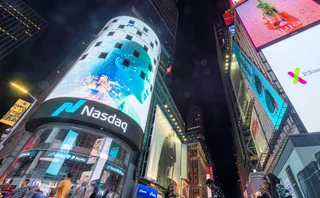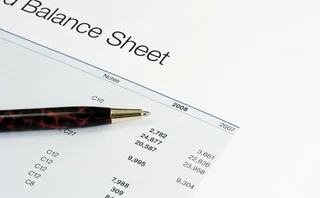
Equiduct Challenges Project Boat
LONDON—Although Project Boat has been recently hailed as the answer to one of the key Mifid reforms to come on Nov. 1, 2007, the initiative is facing challenges from the newly created Equiduct as well as from other exchanges mulling their own offers.
Project Boat is slated to provide in a post-Mifid world pre- and post-trade reporting of off-exchange, over-the-counter (OTC) equities transactions. The Project Boat group, officially announced in September, is a consortium of nine investment banks—ABN Amro, Citigroup, Credit Suisse, Deutsche Bank, Goldman Sachs, HSBC, Merrill Lynch, Morgan Stanley and UBS—declaring that they would
Only users who have a paid subscription or are part of a corporate subscription are able to print or copy content.
To access these options, along with all other subscription benefits, please contact info@risk.net or view our subscription options here: http://subscriptions.risk.net/subscribe
You are currently unable to print this content. Please contact info@risk.net to find out more.
You are currently unable to copy this content. Please contact info@risk.net to find out more.
Copyright Infopro Digital Limited. All rights reserved.
As outlined in our terms and conditions, https://www.infopro-digital.com/terms-and-conditions/subscriptions/ (point 2.4), printing is limited to a single copy.
If you would like to purchase additional rights please email info@risk.net
Copyright Infopro Digital Limited. All rights reserved.
You may share this content using our article tools. As outlined in our terms and conditions, https://www.infopro-digital.com/terms-and-conditions/subscriptions/ (clause 2.4), an Authorised User may only make one copy of the materials for their own personal use. You must also comply with the restrictions in clause 2.5.
If you would like to purchase additional rights please email info@risk.net
More on Exchanges
Nasdaq leads push to reform options regulatory fee
Proposed rule change would pare costs for traders, raise them for banks and defund smaller venues
Asia’s ETF assets on the rise – HKEX presents the results of Asia ETF survey 2019
Asia’s total ETF assets surged by 23.9% in the first half of 2019 thanks to an increasing adoption of ETFs into investment portfolios. According to a survey conducted by Hong Kong Exchanges and Clearing (HKEX), asset expansion in Asia’s ETF market is set…
NYSE Offers Exchange-Calculated Bitcoin Index, with More to Come
NYXBT will initially be based off data from Coinbase Exchange.
Deutsche Börse to set up Europe's first multi-asset RMB platform
German exchange group signs joint venture deal with CFFEX and Shanghai Stock Exchange
Exchange Revenue Figures Rise, Fall; Data Revenues Continue Steady Increase
A mostly positive mix of Q1 results also yield big increases in data revenues for some exchanges.
Lift-off for ASX Aussie dollar swap clearing business
Volumes jump following revamp of Sydney bourse's clearing incentive scheme
Exchange Data Revenues Make Positive Start to 2015
Acquisitions made up for some shortfalls in exchange revenues







